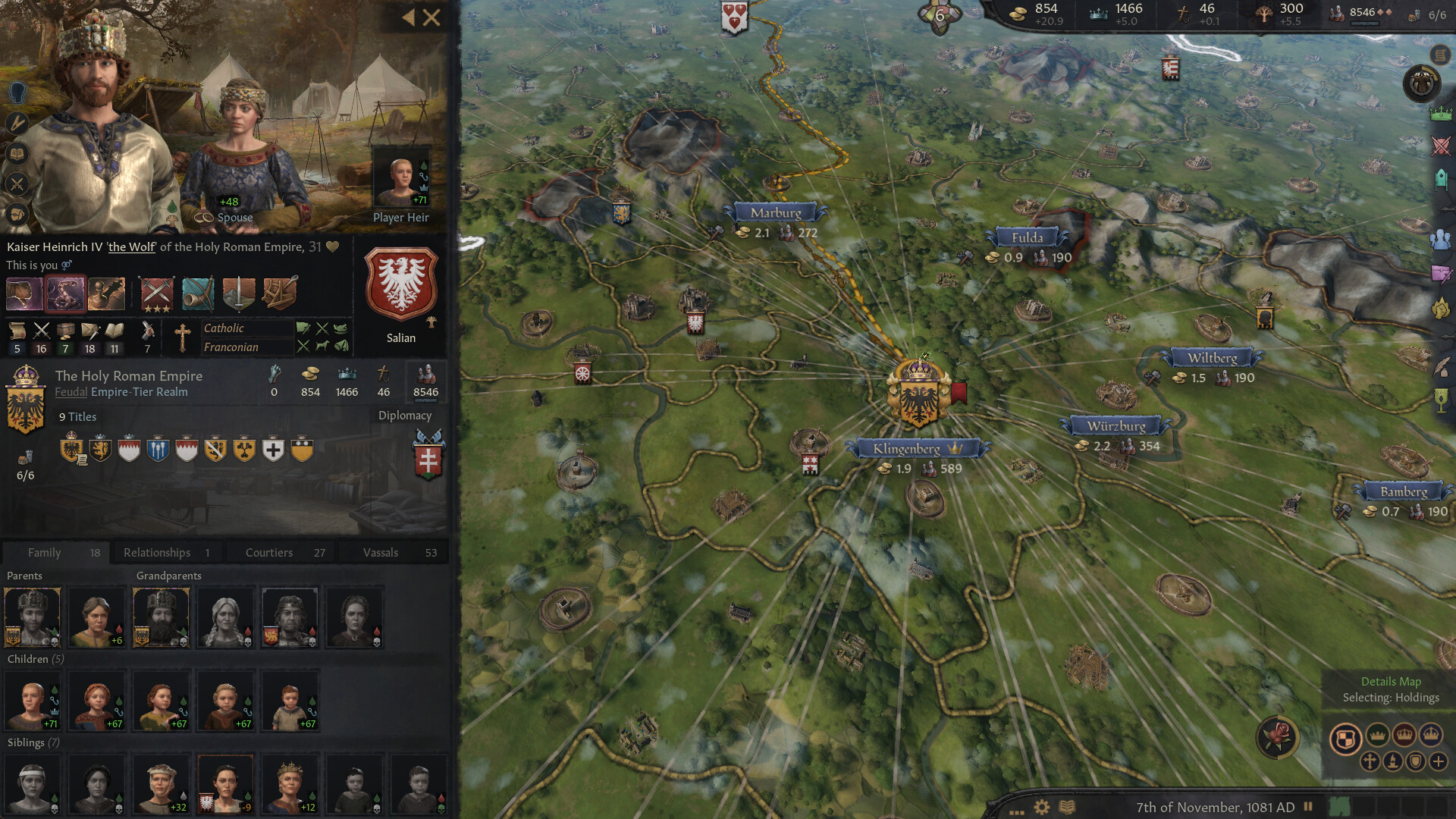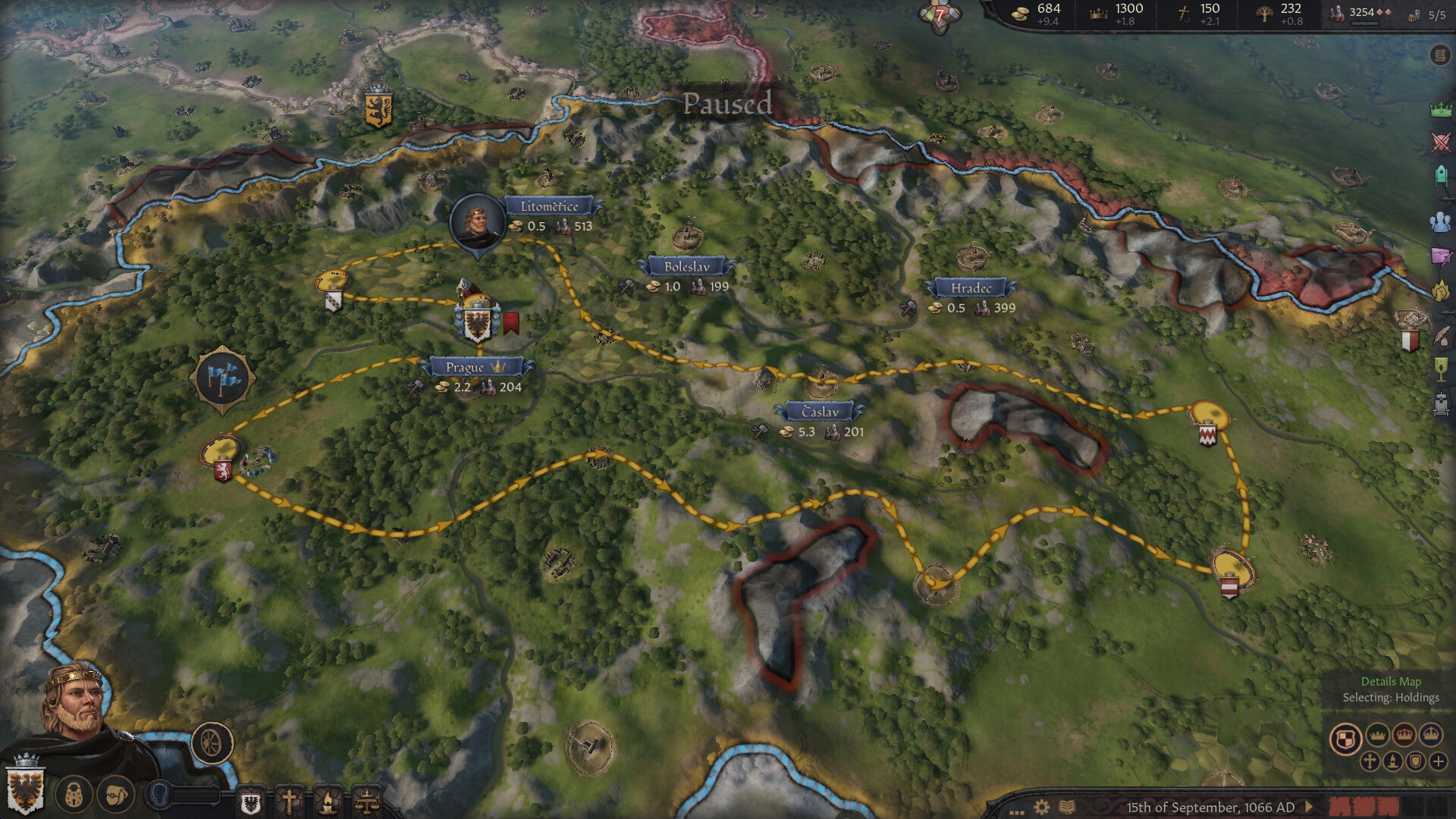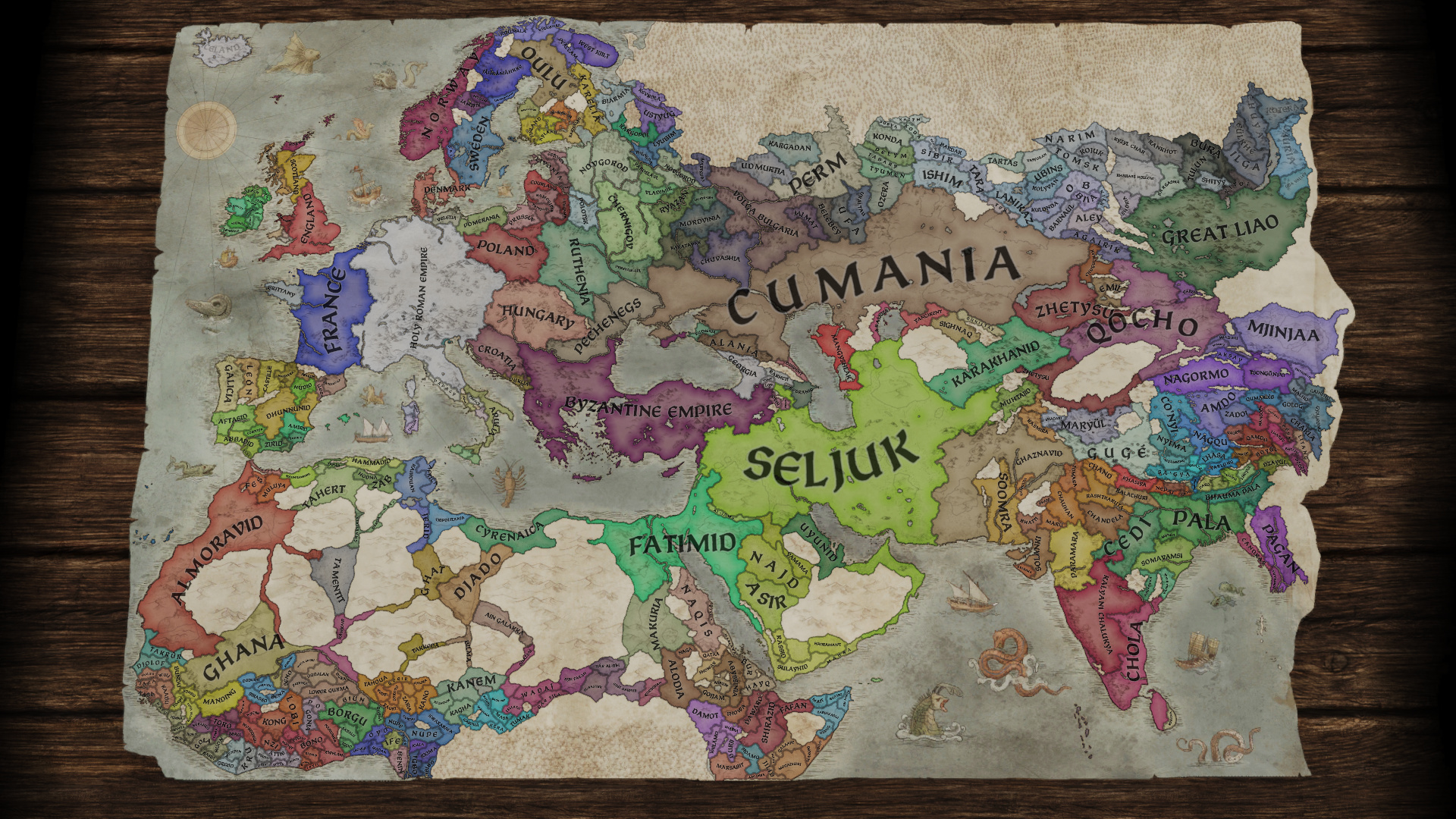When it comes to grand strategy games, few titles match the depth, complexity, and sheer unpredictability of Crusader Kings III. Developed by Paradox Interactive and released in 2020, this medieval dynasty simulator builds upon the success of Crusader Kings II, refining its mechanics and adding even greater levels of player freedom.
Unlike traditional strategy games that focus on nation-building or military conquest, Crusader Kings III is about people—your dynasty, their relationships, and their struggles for power. You don’t just control a kingdom; you control a family, guiding its members through generations of intrigue, war, and scandal. You can also try another online strategy game, it is called kiomet.
With its deep role-playing elements, emergent storytelling, and complex political maneuvering, Crusader Kings III is one of the most unique and immersive strategy games ever made. But is it for everyone? Let’s break down what makes it so special.
A Game of Thrones Without the Script
One of the biggest strengths of Crusader Kings III is its ability to generate compelling, unpredictable stories. No two playthroughs are the same.
-
One game, you might start as a noble duke in France, slowly scheming your way to the throne.
-
Another time, you could play as a Viking jarl, raiding the coasts of England and carving out a kingdom through sheer force.
-
Or maybe you’ll take on the role of a small African tribal ruler, spreading your dynasty’s influence across the continent.
Your character has ambitions, relationships, and personal struggles. They can fall in love, be betrayed, become devoutly religious, or descend into madness. The game doesn’t follow a fixed story—it lets you write your own medieval legend.
Deep and Dynamic Character System
At the heart of Crusader Kings III is its intricate character system. Every ruler, from the lowest baron to the mightiest emperor, has a unique personality shaped by their traits, skills, and life experiences.
1. Traits and Personalities Matter
Each character has core personality traits that influence how they behave:
-
Honest rulers struggle with deceit and intrigue.
-
Paranoid kings might execute potential rivals even without evidence.
-
Lustful rulers may end up with too many illegitimate children, leading to succession chaos.
-
Zealous leaders might launch religious wars and persecute heretics.
These traits aren’t just cosmetic—they affect decision-making, relationships, and even mental stability.
2. Lifestyle Paths – Shaping Your Ruler’s Destiny
Instead of just managing a kingdom, you also guide your character’s personal development. There are five main Lifestyle Focuses:
-
Diplomacy – Ideal for building alliances and maintaining stability.
-
Martial – Focuses on military leadership and conquest.
-
Stewardship – Boosts economy and kingdom management.
-
Intrigue – Perfect for assassinations, blackmail, and manipulation.
-
Learning – Enhances religious and scientific advancements.
Each lifestyle comes with perks and abilities that shape your ruler’s reign.
3. The Importance of Family and Succession
Your ruler will die—often unexpectedly. Whether it’s old age, disease, assassination, or dying in battle, no one rules forever. The real challenge in Crusader Kings III is ensuring your dynasty survives across generations.
This means carefully planning marriages, securing heirs, and sometimes… getting rid of troublesome relatives. A weak or incompetent heir can ruin decades of progress. But with careful planning (and maybe a few “accidental” deaths), your dynasty can rise to greatness.
Politics, War, and Intrigue – More Than Just Battles
Unlike most strategy games that focus on empire expansion, Crusader Kings III emphasizes politics, diplomacy, and subterfuge as much as military conquest.
1. The Web of Alliances
Rushing into war without alliances is often a death sentence. Marrying your daughter to a powerful neighboring king might secure a strong ally, but what if he later turns on you? Every relationship is a potential risk or reward.
Diplomacy isn’t just about making friends—it’s about survival.
2. Warfare – Not Always the Best Option
While you can raise armies and march to war, battles are costly and unpredictable. Mercenaries demand high pay, supply lines must be maintained, and an ill-prepared campaign can destroy a kingdom.
Sometimes, it’s wiser to:
-
Assassinate a rival instead of fighting them.
-
Blackmail a noble into joining your cause.
-
Use religious influence to justify war instead of declaring it outright.
The best rulers win not just with swords, but with strategy.
3. Intrigue – Lies, Spies, and Murder
The Intrigue system is one of the most entertaining parts of the game. If you don’t like your current king’s heir, you can plot an “accident.” If a rival noble threatens your claim to the throne, a well-placed dagger can solve the problem.
Spymasters play a huge role in this, uncovering plots against you and carrying out your own devious schemes. Whether you’re poisoning rivals or spreading rumors to ruin reputations, the political underworld is just as dangerous as the battlefield.
The World Map – A Living, Breathing Medieval Playground
The game map is massive, spanning from Iceland to India, with hundreds of kingdoms, duchies, and counties to control. Every region has its own culture, religion, and unique challenges.
1. Religion and Culture
Religious and cultural differences shape interactions between rulers. A Catholic king might struggle to rule over a Muslim province. A Viking warlord might raid Christian lands but struggle to settle down as a ruler.
The game allows for customization, letting players create their own heresies, reform religions, and shape cultures over generations.
2. Laws and Vassals
Ruling isn’t just about conquest—it’s about governance.
-
Vassals demand land and power.
-
Nobles might rebel if they dislike your rule.
-
Changing succession laws can lead to civil war.
Balancing all these elements is crucial to maintaining stability.
Expansions and Mods – A Game That Keeps Growing
Paradox is known for supporting its games with DLC and updates. Some of the expansions for Crusader Kings III include:
-
Royal Court – Adds a 3D throne room, court intrigue, and cultural interactions.
-
Fate of Iberia – Introduces unique mechanics for the struggle between Muslims and Christians in Spain.
Additionally, the modding community is incredible. There are Game of Thrones and Lord of the Rings mods that completely transform the experience.
Criticism and Downsides
No game is perfect, and Crusader Kings III has some drawbacks:
-
Steep Learning Curve – The depth of the game can be overwhelming for newcomers.
-
Slow-Paced Gameplay – If you prefer fast-paced action, this game might feel too slow.
-
DLC Model – While the base game is great, some of the best features are locked behind paid expansions.
That said, for those who enjoy strategy and storytelling, the game’s depth more than makes up for these issues.
Final Verdict – A Medieval Masterpiece
Crusader Kings III is not just a strategy game—it’s a story generator. Every playthrough creates unique narratives filled with betrayal, romance, war, and legacy-building. It’s a game where history is rewritten with every decision you make.
Pros:
✔ Deep, emergent storytelling
✔ Highly replayable with endless possibilities
✔ Intricate diplomacy, war, and intrigue systems
✔ Beautiful map and world design
Cons:
✖ Can be overwhelming for new players
✖ Slow-paced compared to traditional RTS games
Final Score: 9/10
If you love history, strategy, and role-playing, Crusader Kings III is a must-play. Just be prepared to lose hours to its endless rabbit hole of medieval drama.
